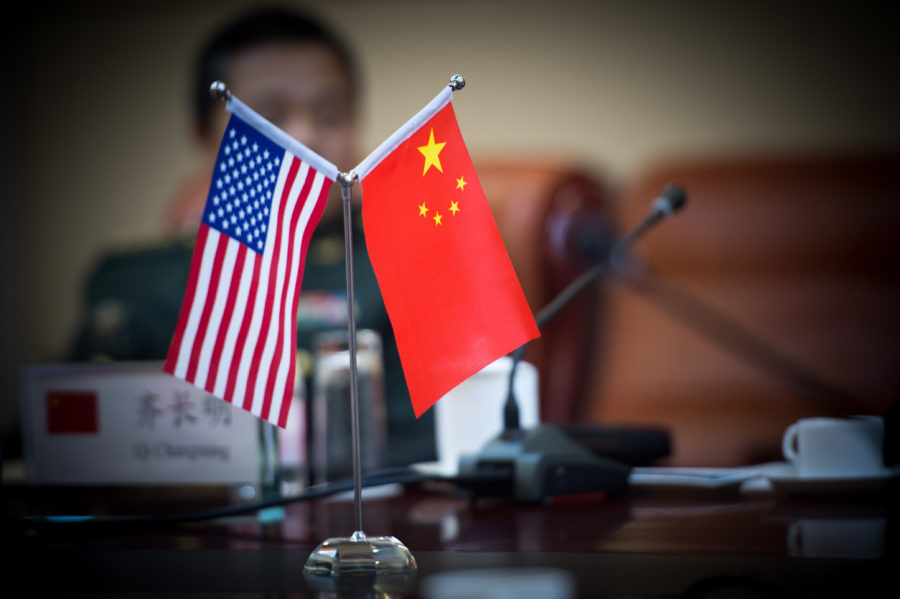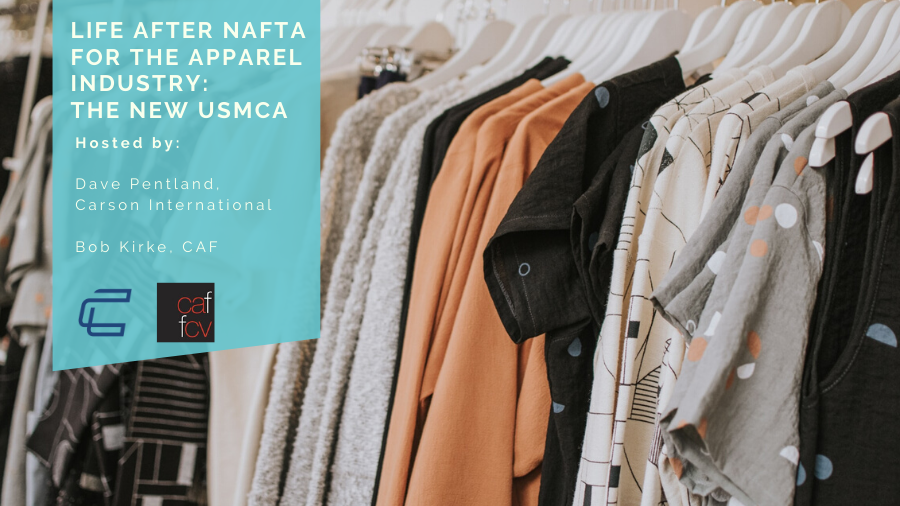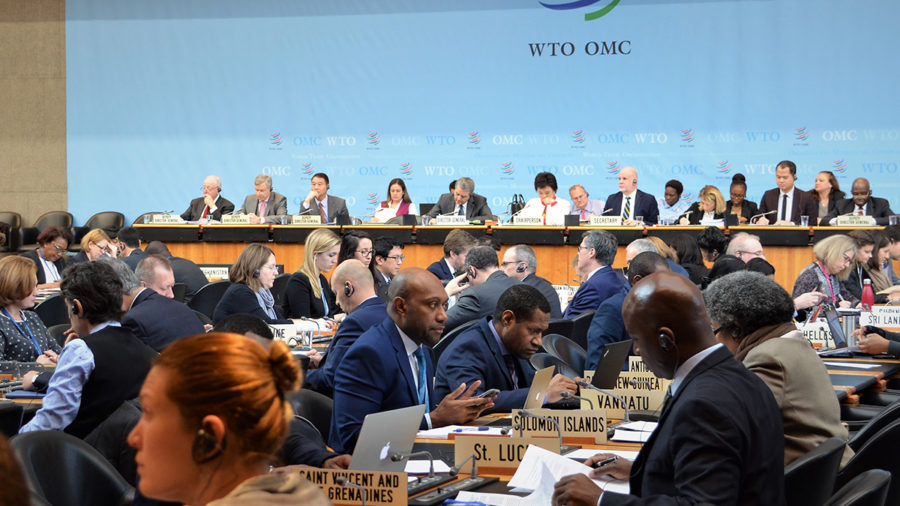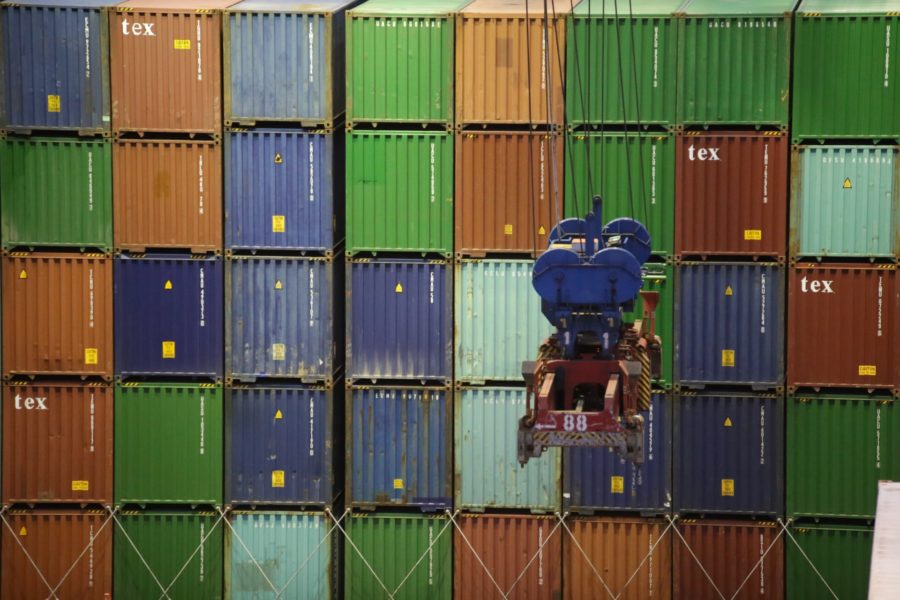News
Sign up for recent trade news that can affect your business:

Chinese government officials told major state-run agricultural companies to pause purchases of some American farm goods including soybeans as Beijing evaluates the ongoing escalation of tensions with the U.S. over Hong Kong, according to people familiar with the situation.
State-owned traders Cofco and Sinograin were ordered to suspend purchases, according to one of the people, who asked not to be identified discussing a private matter. Chinese buyers have also canceled an unspecified number of U.S. pork orders, one of the people said.
Private companies haven’t been told to halt imports, according to one of the people.
The halt is the latest sign that the hard won phase-one trade deal between the world’s two biggest economies is in jeopardy.
While Chinese Premier Li Keqiang last month reiterated a pledge to implement the agreement that was inked in January, tensions have continued to escalate since then amid a standoff over Beijing’s move to tighten its grip on Hong Kong.
The measures to halt imports come after President Donald Trump on Friday lobbed a barrage of criticism at Beijing after it moved to impose controversial new national security legislation on Hong Kong.
Trump said the U.S. would begin the process of stripping some of Hong Kong’s privileged trade status, without detailing how many changes would take effect and how many exemptions would apply.
He also promised sanctions against Chinese and Hong Kong officials “directly or indirectly involved” in eroding Hong Kong’s autonomy, though stopped short of giving specifics.
Still, as China started to gradually reopen its economy from the virus-led lockdown, it had increased its pace of imports, including a more-than 1-million ton cargo of American soybeans in just two weeks in May, and rare purchases of U.S. soybean oil and ethanol.
But then tensions between the U.S. and China began escalating, with Trump blaming the Asian nation for misleading the world about the scale and risk of the coronavirus outbreak. The fallout filtered through to the commodities markets, with China opting to buy Brazilian soy instead of American beans.
(Source: BNN Bloomberg)

In a Federal Register notice published last week, the Office of the U.S. Trade Representative has revoked two Section 301 product exclusions granted earlier this month.
Section 301 tariffs have been reinstated for the following two products:
As a result of this change, these products will remain subject to the additional Section 301 tariff of 7.5%.
Click here to read the full notice by the Federal Register.
If you have any questions as a result of this change, please reach out.
Get in touch:
Matt Earish, COO, matt@carson.ca

Carson International, in partnership with the Canadian Apparel Federation and Export Development Canada, are pleased to present this one-hour webinar on June 4 for members of the apparel industry.
Join Carson Vice President, Dave Pentland, and Bob Kirke of CAF, as they discuss key provisions of the new United States-Mexico-Canada Agreement (USMCA) and changing customs procedures which will come into force on July 1, 2020.
The purpose of this webinar will be to explain concrete issues regarding the flow of goods across the border when the agreement enters into force. Specifically, we will discuss new Origin Certification, the TPL Program, De minimis, changes to Rules of Origin (and a timeline for their implementation) and other provisions of concern to apparel firms.
Date: Thursday, June 4, 2020
Time: 2:00 – 3:00 p.m. EDT
Who should attend: Owners, Senior Managers, Technical staff, Compliance Managers involved in the import, export, distribution of Apparel Goods. Registrants who are unable to attend the live webinar for any reason will receive a copy of the presentation following the event.
Once you have received your passcode, register by selecting the “complimentary” option.

A group of World Trade Organization nations known as the Ottawa Group will hold a ministerial-level virtual meeting on June 8 to discuss how the 13 governments might produce a COVID-19 action plan on trade.
Canadian Trade Minister Mary Ng mentioned the meeting during an online discussion last week hosted by the Washington International Trade Association. An action plan related to the pandemic would look at transparency, digital trade and trade in medical devices, as well as the impact of COVID-19 on businesses and enhancing engagement from outside the government.
The Ottawa Group formed in October 2018 in the nation’s capital to find ways to overhaul the WTO. The initiative is led by Canada and includes Australia, Brazil, Chile, the European Union, Japan, Kenya, Mexico, New Zealand, Norway, Singapore, South Korea and Switzerland.
WTO Deputy Director-General Alan Wolff warned on Wednesday that a failure to overcome challenges facing the trading system could undermine social and economic gains made possible by the system following World War II.
“The next and most serious near-term challenge will be a likely series of second waves of the coronavirus with the potential for additional national restrictions placed on the availability of vaccines and pharmaceutical remedies outside of the country of invention and/or production,” Wolff said.
Any COVID-19 initiatives, most of which have been proposed by mid-size countries, that don’t get endorsed by the U.S., China and EU “might not prove reliable,” he added.

A NAFTA panel has backed the U.S. International Trade Commission’s decision regarding softwood lumber imports from Canada, but British Columbia’s industry group still hopes for an ultimate victory.
The U.S. Lumber Coalition says the decision affirms the USITC determination from December 2017 that the imports “materially injured” American producers and workers.
It says in a news release that the harm is caused by the Canadian government providing its lumber industry “massive subsidies” and dumping those products into the U.S. market.
The BC Lumber Trade Council says it is disappointed by Friday’s decision, saying it remains convinced that the determination that the U.S. industry is injured by Canadian lumber imports is “flawed and without merit.”
Despite the decision, it said Canada still has pending World Trade Organization and NAFTA challenges to the U.S. Department of Commerce’s underlying countervailing duty and anti-dumping duty determinations that have yet to be resolved.
Council president Susan Yurkovich says the group representing provincial producers is confident those proceedings will again support Canada’s position and rule the duties are unwarranted.

Sales across U.S. bars and restaurants increased by 25% in the week ending with May 16 as some states eased coronavirus lockdown measures, according to a Nielsen CGA report.
While total sales rose 25% in the seven-day period compared to the week ending 9 May, overall velocity – the rate of change – now stands at a decline of 54%, compared to the pre-COVID-19 norm of more than an 80% decrease.
Nielsen noted that some states witnessed huge improvement in velocity trends as lockdown measures were lifted. In Texas, velocity is now at a drop of 32% below the pre-coronavirus norm. Velocity has grown week-over-week by 30% (May 9) and 21% (May 16).
While on-trade outlets remain closed to in-house dining and drinking in New York, California and Illinois, Nielsen said that sales velocity continues to improve on a weekly basis as consumers continue to embrace new forms of dining, including curbside pickup and delivery options.

The United Kingdom has revised its global tariff strategy, laying out for Canada and other trading partners the rates that will apply to their exports as of Jan. 1, 2021 — and in the process, setting out Britain’s starting position for future bilateral trade talks.
The new list published Tuesday replaces a temporary regime announced a year ago that would have cut tariffs on nearly all (an estimated 95 per cent) of what the U.K. imports — a hastily-developed scheme designed to the cushion the blow to British consumers of a sudden no-deal Brexit that, in March of 2019, appeared possible.
Under the new regime, Most Favoured Nation (MFN) tariff rates higher than zero will apply to about half of the products imported by the U.K. from around the world, or about 60 per cent of the value of its global trade, once it completes its transition out of the European Union trading bloc. The U.K. continues to negotiate the final terms of this exit.
Many trading partners, Canada included, want clarity on exactly how future trade between the EU and its former member will work before proceeding with their own bilateral talks with the U.K. Canada has had preferential trading terms with the U.K., its third-biggest export market, under its Comprehensive Economic and Trade Agreement (CETA) with the EU.
The CETA will continue to apply until the end of this year, but beyond that, the terms of Canada–U.K. trade are uncertain.

Many businesses working with a small number of products and trade lanes can benefit from working with their freight forwarder,
International trade across the world’s longest border is a complex industry full of shifting regulations and rapidly evolving technology. Customs brokers navigate the ever-changing world of shipping for you, to help individuals and businesses clear customs with ease. Reliable customs brokers will have all of the resources needed to help your business stay up-to-date regarding any technological or regulatory changes
There are certain specific benefits of working with a customs broker. The following are a few of the key ways your business can experience improved operations.
Customs brokers can help make sure that importers are in compliance with the latest customs regulations. A good broker will also be able to address and handle any complexities and inform you about how to further reduce your tax burden and duties. In turn, you’ll be able to minimize the risks associated with importing and exporting.
Customs brokers possess all of the technology and tools required to transfer documentation and maintain communication with customs. As a result, you don’t need to worry about procuring the software or hardware or performing any maintenance, which helps reduce the costs that you would otherwise see when operating entirely in-house.

With a customs broker behind customs, you can also avoid the need to look for licensed specialists or brokers on staff, which gives you more time and energy to focus on other more important aspects of your business. Customs brokers are also responsible for continually monitoring shipments to ensure they avoid any potential issues along the way. Subsequently, you won’t need to rely on staff to monitor your shipments at any point, which frees them up to perform other tasks.
Each of these benefits makes it worthwhile to hire a customs broker to handle imports. In the process, you’ll be able to avoid potential importing issues and save more money and time.
If you’re in need of a customs broker you can trust to manage imports without issue, Carson International is here to give you everything you need as a U.S. and Canadian customs brokerage with over 50 years of experience serving the International Trade community.
Carson’s compliance solutions offer the ideal combination of flexibility and reliability, whether you’re a startup or a global company.
We are committed to maintaining compliance and remaining up-to-date on all of the latest regulations and technology in the industry. With our services behind your business, you can focus on growing and leave the customs process to us. We have all of the knowledge and data necessary to keep the process efficient and error-free, with total transparency that enables you to maintain complete visibility of the supply chain.
We’ll work with you to exceed your expectations and help your business maintain compliance, efficiency, and cost-effectiveness.

Canada Border Services Agency introduced Final Safeguard Measures in connection with the Order Amending the Order Imposing a Surtax on the Importation of Certain Steel Goods (Exclusions), as well as on the Surtax on the Importation of Certain Steel Goods Remission Order (Surtax Remission Order), which came into effect on August 23, 2019.
Customs Notice 19-08 provides instructions, exemptions, and a schedule of rates with respect to the heavy plate and stainless-steel wire covered by these orders.
The Surtax rates will be reduced during the scheduled period on imported goods absent a specific permit, or once imports of the goods exceed the applicable Global Affairs Canada tariff rate quota.

Earlier this month, U.S. Customs and Border Protection issued Cargo Message 19-000260, which provides updated guidance on seeking retroactive product exclusions from the administration’s Section 232 and Section 301 trade enforcement measures. Click here to view.
Section 232 and Section 301 product exclusions may be retroactive for unliquidated entries and for entries that are liquidated but where the liquidation is not final and the protest period has not expired.
If a product exclusion has been granted, an importer of record may request a refund by filing a post summary correction for unliquidated entries or file a protest for entries that have liquidated but where the liquidation is not final and the protest period has not expired.
When a product exclusion is granted, an importer may submit a correction to request a refund on unliquidated entries up to 15 days prior to the scheduled liquidation date (generally within 300 days from the date of entry summary filing). If an entry summary is set to liquidate in less than 15 days or has already liquidated, the entry summary is beyond the filing period for correction. However, the importer may file a protest so long as it is filed within the 180-day period following liquidation of the impacted entry summaries.
Approved requests extend the liquidation of an entry summary for one year. When a product exclusion is granted, an importer may submit a PSC to request a refund on the entry summary(ies). If a product exclusion is not approved, no further action is taken, and the entry summary will liquidate as entered one year later than the originally scheduled liquidation date.
The status of Section 232 exclusion requests can be checked at the U.S. Department of Commerce here.